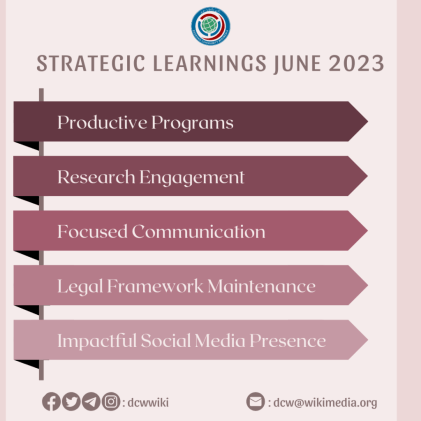News
[CFT] sec(4) for Route Based IPSec VPNs
In a message to the tech@ mailing list on July 4th, 2023, David Gwynne (dlg@) presented a diff that adds a new virtual network interface dubbed sec(4). The message reads,
Subject: sec(4): route based ipsec vpns From: David Gwynne <david () gwynne ! id ! au> Date: 2023-07-04 5:26:30 tl;dr: this adds sec(4) p2p ip interfaces. Traffic in and out of these interfaces is protected by IPsec security associations (SAs), but there's no flows (security policy database (SPD) entries) associated with these SAs. The policy for using the sec(4) interfaces and their SAs is route-based instead. Longer version: I was going to use "make ipsec great again^W" as the subject line, but thought better of it. The reason I started on this was to better interoperate with "site-to-site" vpns, in particular AWS Site-to-Site VPNs, and the Auto-Discovery VPN (ADVPN) stuff on fortinet fortigate appliances. Both of these negotiate IPsec tunnels that can carry any traffic at the IPsec level, but use BGP and routes to direct traffic into those tunnels.
Before Xerox, there was Addressograph
Instant Vintage quand Line Renaud acceuillait Télé Star dans sa maison de Vaucresson en 1979
bbc news,
fox news,
sky news,
abc news,
google news,
ukraine news,
cnn news,
news today,
yahoo news,
msn news,
news articles,
news and observer,
news anchor,
news and advance,
news articles today,
news anchor salary,
news around the world,
news and record,
news apps,
news atlanta,
arsenal transfer news,
arsenal news,
ary news live,
a news cafe,
a newspaper,
a news article,
a news aggregator is a service that,
about chelsea news,
news break,
news background,
news break app,
news bias chart,
news boston,
news banks,
news biden,
news bg,
news bloopers,
breaking news,
bbc news uk,
bbc world news,
bbc news live,
breaking news today,
boxing news,
bbc news ni,
breaking news uk,
biden news,
Saiba quem são os primeiros casais participantes do Power Couple Brasil
Daniela Katzenberger: Sie blamiert sich beim „Schlagerbooom Open Air“
Author: Source Read more
I’m a seasoned web developer and designer
In addition to my proficiency in web development and design, I offer courses on Joomla and Graphic Design concepts. These courses provide comprehensive knowledge and insights into these subjects, empowering individuals to enhance their skills and create impressive online platforms.
My other services also include cinematography and digital marketing.
————————————————————————————————————
https://www.abdulwaheed.pk/en/about.html
————————————————————————————————————
on Facebook
– https://www.facebook.com/awofficial786
Subscribe, Like & comment on video,
https://www.youtube.com/c/abdulwaheedpk?sub_confirmation=1
————————————————————————————————————
LIKE & share with this intention to spread virtue and make it easy to act on it.
نیکی پھیلانے اور اس پر عمل آسان بنانے کے ارادے کے ساتھ جڑے رہیےاور دوسروں کو دعوت بھی دیجیے
June 2023 strategic insights from the DCW researchers
Golems GABB: The Rise of Headless CMS: What it Means for Web Developers
Editor
Mon, 07/03/2023 – 13:12
Companies seek ways to remain flexible and scalable as they move into a multichannel future. Therefore, they are turning to headless content management solutions to fill these gaps. Regardless of whether you think you don’t need a headless CMS to see the benefits, you do.
As a right, headless CMS has very contradictory connotations. We’re not talking about headless in the traditional sense. We are discussing the future of successful e-commerce and corporate websites with Headless CMS.
Box x96 iPTV, comment installer par USB ?
Box android est un dispositif de diffusion multimédia, parmis les marques les plus populaires, on trouve la xiaomi mibox, formuler, x96, fire stick amazon, bqeel … etc, compatible pour toutes les téléviseurs ( peu importe le modéle ) et vous donne accès à de nombreuses plateformes et application, IPTV, réseau sociaux, Netflix, Prime Vidéo, youtube … trés conseillée pour les utilisateurs IPTV qui ne disposent pas d’une télévision connectée, à l’aide de cette box, vous aurez la possibilité de transformer votre télévision en Smart TV .
Il suffit de la brancher et télécharger nos applications IPTV , Voici alors trois tutoriels sur trois vidéos faciles qui vous expliqueront la démarche d’installation des applications smart IPTV et IPTV SMARTERS et NET IPTV .
Nos abonnements à IPTV permettent de décrypter gratuitement les chaines « payantes ». Ainsi, vous pouvez avoir les milliers de chaines VOD PPV de cinéma, de jeunesse, mais aussi des chaines de sport …
Pour vous abonner c’est trés simple, téléchargez une des applications IPTV puis , ( CONTACTEZ : iPTVPIRATE.COM ), remplissez le formulaire, l’installation de l’abonnement sera faite à distance par notre équipe, tout ce que vous aurez à faire par la suite, c’est de redémarrer votre box internet et votre box android.

